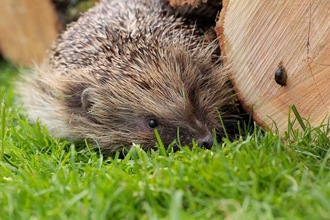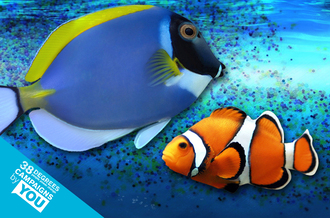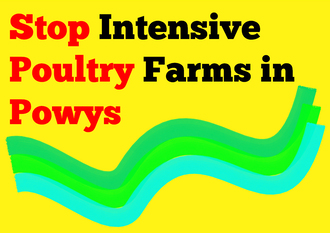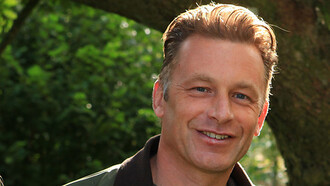-
Remove firearms licence from UKIP leader.Badger culls are not policed by anyone, the police when pushed on any breaches in guidelines (meaning a criminal offence has taken place) will refer complainants to Natural England who in turn do nothing. It's time the police to show they are neutral and not as evidenced time and again an actual pro-cull organisation.1,873 of 2,000 SignaturesCreated by Freeda Brocks
-
Cancel the roll out of the Badger Cull in South Devon.I am a wildlife sculptor with a studio in South Devon, which is also between two farms shooting badgers, less than two miles from the popular town of Totnes. Since the badger cull started here just three weeks ago, we have seen a huge dropping off of visitors, including during Devon Open Studios. Licences have been issued to approximately 200 farms in the South Hams to shoot badgers between sundown and 12 noon, every day for a minimum of six weeks, during the region's busy tourism season. Unlike previous years, the farmers themselves are allowed to shoot badgers instead of using trained professionals. There are serious concerns over public safety with two of the five badger culling farms overlooking the busy town of Totnes having previously witnessed a fatal shooting and public order offences involving knives. In 2004 a 13 year old was shot dead in the fields of Lower Cholwell Farm, caused by a gunman failing to follow basic safety guidelines with a high-powered rifle. Several of our busiest beaches are now directly below and well within stray-bullet range of badger culling farms, such as the popular Blackpool Sands, Slapton Ley Nature Reserve, Torcross, Bigbury, Bantham and Thurlstone Beaches. Meanwhile there are at least 5 badger shooting farms around Kingsbridge and the same around Totnes. On Sunday 11th September shooting has been heard directly behind a popular Pub at the edge of Totnes, at 11pm when there were still people drinking outside admiring the view of the river Dart. Even those in Bridgetown are within 2 miles of shooting in Ashprington. If you truly wanted to be safe in Totnes there is nowhere to turn. Official badger culls are also accompanied by a rise in illegal persecution and the South Hams is no exception. In 2013 holiday makers were horrified by the sight of a field strewn with the bodies of gassed badgers overlooking Blackpool sands. These had been paralyzed from the effects of carbon monoxide poisoning, and will have died a slow and painful death by starvation and thirst. On 11th September this year several poisoned badgers were discovered on Wall Park Road leading to the popular Berry Head Hotel and Country Park, again in clear view of visitors. Rolling out a badger cull here has given a green light to other forms of badger persecution, regardless of its impact on tourism. Anyone who has spent any time at all in West Somerset during the badger culls, knows how toxic those tourist village names have become. I certainly shall never visit Exmoor again as there are things I witnessed there that I shall never forget. Just imagine what will happen if our tourist industry gets tarnished with being a region soaked in badger blood, with visitors afraid to walk the countryside for fear of a stray bullet, or of finding a shot, poisoned or gassed badger. As the tourism industry creates more income and more jobs than the hand full of farms taking part in the South Hams Badger Cull we should not have our jobs, our prosperity, and our personal security held to ransom by just 0.5% who are killing badgers.3,045 of 4,000 SignaturesCreated by Ama Menec
-
Save the Barnet BatsBats are European Protected Species (EPS) due to their decline and vulnerability across Europe; this means they require legal protection that covers individual bats and their roosts. Bat crime is the second most encountered wildlife crime following raptor persecution. Wildlife crime against bats, is often in the form of roost destruction and disturbance, which is not just devastating for the species directly affected at a local level but also for wider conservation efforts. Legislation dictates that any structures or place which a bats use for shelter or protection are protected from damage or destruction whether occupied or not. This legislation has been incorporated into planning policies. This means that planning authorities have a legal obligation to consider whether bats are likely to be affected by a proposed development. They are breaking the Law's in place to build a Leisure centre which is a crime punishable by up to 6 years in prison. Please see below link to the Bat Survey proving Bat activity in the park and area's they fly which is directly where they plan to build: https://publicaccess.barnet.gov.uk/online-applications/files/372770CAD090DE52FC3D178648D0BBE7/pdf/16_6118_FUL-BAT_ACTIVITY_REPORT-3510707.pdf The other proposed site for the Leisure centre - Danegrove playing field: ( A disused field nearby) On the original proposed plans : The site is also currently under-used due as previously highlighted to its topography, poor drainage and the availability of better facilities elsewhere. Danegrove Primary School currently makes use of other recreational space and has indicated that it would have no objections in principle to the site being brought forward for enhanced sports and leisure facilities which it would also be keen to use. So why use a site that is high in Bat activity and other protected species such as Owls, Hedgehogs, Wrens and Robins?429 of 500 SignaturesCreated by Zoe oConnor
-
Stop Schwarzkopf Testing Their Products On Animals And Using Animal ProductsSchwarzkopf, here's an important message for you. Animals are not ours to abuse or test products on. There are now many alternatives to test your products to make sure they're safe for use and do not pose a danger to consumers. Animals do not need to suffer for your products to pass their safety tests, get onto shelves or into consumers homes. Not only is animal testing unnecessary in the world we live in today, it's completely unethical and unimaginable that any human being could cause that amount of pain to a sentient being for the sake of cosmetics. It's important to rid of animal testing in cosmetic companies because it's unethical and unnecessary. It may also be important to know that in fact your sales could potentially rise. Veganism and activism against animal cruelty is growing every single day. Every vegan and every animal activist is a potential customer for cruelty free companies so this may be something to consider.265 of 300 SignaturesCreated by Becky Edgett
-
Save Coul Links protected nature (Loch Fleet Ramsar SSSI & SPA) from golf development vandalismA planning application was submitted to Highland Council to construct an 18-hole international golf course on Coul Links, Sutherland but the applicant is not Trump Golf. The target lies within Loch Fleet Site of Special Scientific Interest, Special Protection Area for birds & international Ramsar wetland, which is predominantly estuary. Coul Links is one of very few expanses of undeveloped & largely unspoilt sand dunes remaining in Scotland, & its special wildlife & landforms are protected by those UK & European legal designations & international treaty. Development would be at odds with Highland Council’s environmental policies. The government’s conservation agency, which objected, describes SSSIs as “areas of land & water that Scottish Natural Heritage (SNH) considers to best represent our natural heritage - its diversity of plants, animals & habitats, rocks & landforms, or a combination of such natural features. They are the essential building blocks of Scotland's protected areas for nature conservation … It is an offence for any person to intentionally or recklessly damage the protected natural features of an SSSI." Trump got official approval to destroy Foveran Links SSSI after exaggerating economic benefits, much shenanigans & Scottish Government intervention. That site will probably be denotified as SSSI (confirmed Dec 2020). The present speculator is Coul Links Ltd. led by Mike Keiser, President of Bandon Dunes Golf Resort, Oregon, Trump Golf’s main global rival, & entrepreneur Todd Warnock who similarly claims 'I can make this environment better'. From Oct 2015, press articles publicised proposals for the golf course. Developers blithely spoke of perceived advantages to golf & economy, ignored conservation designations but mentioned new nature trails & wildlife ‘information’. Development propaganda has not informed the public what wildlife, habitat, landforms & amenity will be destroyed & degraded. Exhibitions in Aug 2016 & Oct 2017, to elicit public votes of support, paid scant attention to wildlife & presented flawed ecology. The former relegated a habitat survey to just a tiny cryptic map at Scottie dog eye level. The less truth people know the less insensitive the plans appear. Golf course construction would be an unnatural catastrophe. It would mean excavating, recontouring, burying wet slacks, reseeding with introduced grasses, addition of plastic membranes, irrigating & intensively mowing 40.5 ha, habitat fragmentation, under-grazing & eradication of (valuable grazers & browsers) rabbits & deer, fertilising & herbiciding (& run-off), with substantial collateral damage, immediate & insidious, & bulk habitat & species translocation of 4.5 ha. dune heath, with insects & rare lichens, & 100 rare dune juniper, with displacements on receptor areas, contrary to government's 'A Habitats Translocation Policy for Britain' (2003) recently relaxed. Size & connectivity of habitats are ecologically critical, affecting species populations, diversity, interaction & survivability. Construction traffic, borrow pits & sand-moving would disturb & damage the geomorphology, hydrology (water quality & seasonality), low-nutrient profiles (on which plants rely) & habitat biodiversity over a much wider area. Fine irregular patterns of topography, micro-habitats & vegetation mosaics, like dry hummocks & wet slacks, would be destroyed, displacing specialised, scarce, rare & vulnerable plants & insects. Human disturbance would reduce bird populations in surviving habitats. Dunes naturally have cycles of erosion & deposition. Plans include greens & fairways constructed near foredune crests & a burn outlet, eliminating important species & weakening natural sea defences regardless of risks. This would probably necessitate adding a culvert & an artificial expanse of boulder rip rap, leading to beach narrowing (part National Nature Reserve) & coastal erosion nearby, the judgement of leading geomorphologist Dr Jim Hansom of Glasgow University. Compromise from 'invasive' species, the result of management neglect & rejected SNH grant aid (£230,000 since 2010), & regenerating North American lodgepole pines (misidentified by golf's ecologists as Scots pines), is being grossly exaggerated to excuse 'remediating' so much natural vegetation with manicured mediocrity. Naturalness is a key criterion in SSSI selection. Bracken, gorse, tall herbs & rank grassland support more wildlife than lawns: https://butterfly-conservation.org/files/habitat-bracken-for-butterflies.pdf. Fonseca's seed-fly, thought endemic to Sutherland dunes, requires 'weeds'. Claims about biodiversity net gain from moving fragile habitats & species, controlling Scots Pine, rare & native at Coul, & cessation of duck shooting are ludicrous. Threatened habitats outside the SSSI, in a golf 'remediation' area, are of comparable biodiversity, including Fonseca's Seed-fly, Baltic Rush, Rough Horsetail, Moonwort, Skullcap, Butterwort, Fragrant, Frog & Creeping Lady's-tresses Orchids, Small Blue butterfly & plants at their northern UK limits, like Restharrow & abundant Rock-rose, the food-plant of scarce Northern Brown Argus butterfly. The developers talk of 'sensitivity', 'minimalism', ‘naturalness’, 'utmost care' & the high repute of its designers, but Oregon track record conflicts: https://oregoncoastalliance.org/bandon-dunesbiota-bulldoze-roads Leading dune ecologist Dr Tom Dargie describes the developer’s surveys & Environmental Statement as ‘unfit for purpose’. He judges the site worthy of (European) Special Area of Conservation (SAC) status, which would have prevented such development being considered. There is a superfluity of coastal golf courses in Scotland, many undersubscribed, some closing, mostly eroding. The environmentally responsible option is to avoid development within such special, rare & fragile habitats.94,483 of 100,000 SignaturesCreated by Andrew Weston

-
Trees for Britain. Project Tree.This is important because the UK is one of the least wooded countries within the whole of Europe. The country was completly covered in trees when the first people arrived. Now only 13% of our land area is wooded. Woodland is the naturally occuring habitat for this country. Fields, wildflowers, breakland and heathland although great for wildlife are habitats that arose in the abscense of our woodlands. Without woodlands on our east coast the land is being lost to the sea due to erosion. Without woodlands in our uplands the soil and wildlife are suffering amd floods downstream in our urban areas are rife. Most of the UK' indigenous biodiversity resides in our wooded areas because that is the natural habitat they would have had in this country before the great clearances of the forests. Surely for a country which is naturally of woodland habitat it is the duty of the Government to make sure there is plenty of this rich habitat left and that it expands. -Woodlands hold our greatest biodiversity. -Woodlands act as a windbreak (when enough of them) so should reduce effects of wind on urban areas. -They are brilliant places for people to escape to. -Trees help give us clean air and beautify the landscape. -They slow down and in some cases prevent soil erosion. -Trees help to prevent flooding by slowing down the process of water falling as rain getting to the sea. I believe if this cannot be done then the east coast of the country should at least be focused on. We loose meters of land a year to the North sea on the Holderness coast due to soil erosion. Houses cant be built on the cliffs, its a danger for people to be there. With the addition of trees the soil wound be bound together, it would be less saturated and as a result erosion would be a fraction of the rate it is now.23 of 100 SignaturesCreated by Daniel Thomas
-
Ban slug pellets that kill hedgehogs and petsThese pellets kill hedgehogs, birds, amphibians and pets and poison children if eaten. Hedeghogs eat the slugs and die. Cats and dogs have been killed eating these pellets. Children can also be harmed if they eat the pellets. Hedgehogs are likely to be extinct within 15 years. Slug pellets only kill 10% of slugs and there are slug pellets available that only kill slugs. Hedgehogs are a natural predator of the slugs. We need to do all we can to prevent their extinction.9,011 of 10,000 SignaturesCreated by Anne Wood
-
Ban any microbead products at TescoThis is pollution of a most destructive kind. Once it goes down the drain and ends up in the ocean it causes untold damage to organisms ranging from plankton to birds and sea mammals. Waitrose recently announced that they are going to stop stocking ANY products with microbeads in them. All other supermarkets should follow their great example and, not only stop using them in their own products, but stop stocking them all together.528 of 600 SignaturesCreated by David Roberts
-
Morrisons: Ban any microbead productsThis is pollution of a most destructive kind. Once it goes down the drain and ends up in the ocean it causes untold damage to organisms ranging from plankton to birds and sea mammals. Waitrose recently announced that they are going to stop stocking ANY products with microbeads in them. All other supermarkets should follow their great example and, not only stop using them in their own products, but stop stocking them all together.308 of 400 SignaturesCreated by Susie Mears
-
Ban any microbead products at BootsThis is pollution of a most destructive kind. Once it goes down the drain and ends up in the ocean it causes untold damage to organisms ranging from plankton to birds and sea mammals. Waitrose recently announced that they are going to stop stocking ANY products with microbeads in them. All other supermarkets should follow their great example and, not only stop using them in their own products, but stop stocking them all together.298 of 300 SignaturesCreated by Gillian Crotty
-
Say no to intensive poultry & egg farming in PainscastleIntensive poultry and egg farming units are cropping up all over Brecon & Radnorshire. These units should have no place in our beautiful countryside, and we would urge farmers to diversify in more ethical and environmentally friendly ways. Plans have been submitted to Powys County Council for sheds crammed with 16,000 chickens to lay free range eggs. These will join 12,000 birds already housed elsewhere on the farm. We don’t want to see this happen. There are several reasons why: - - Lorry traffic on the narrow roads will increase significantly. The access road is dangerously narrow in parts. This is extremely unsafe and will add to noise and pollution in the area. - Ammonia from these units will cause unpleasant odours and impact on the neighbouring farms and residencies, some of which rely on tourism for income and could be badly affected. - The environment could suffer with nitrogen from the shed's ventilation shafts damaging surrounding flora and fauna. - Waste from these units threatens to contaminate the water system and harm wildlife in our local area. - The new farm buildings will severely affect the visual landscape of the area. We want to support a thriving local farming industry. We will support anyone who wants to diversify their farming mix to ensure a more sustainable future – but not if the price is irreparable damage to our beautiful part of the world. Please add your signature to this petition to try and stop yet another intensive poultry shed in Powys.319 of 400 SignaturesCreated by Louise Davies
-
BBC - Don't sack Chris Packham.Chris Packham is a much loved and respected naturalist and presenter, who campaigns for wildlife and conservation. The Countryside Alliance and other organisations are calling for the BBC to sack him, in other words silence him, for speaking out in his campaigns. We think his campaigns for wildlife are justified, as they are based on scientific evidence, and he keeps his campaigning and role at the BBC separate.158,157 of 200,000 SignaturesCreated by Rob Neil

Hello! We use cookies to improve your experience by providing insights into how the site is being used. Find out more.
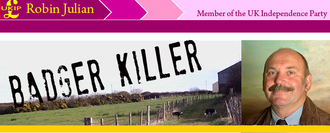
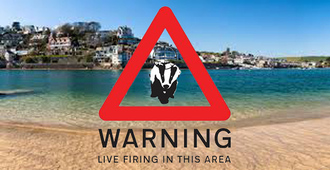
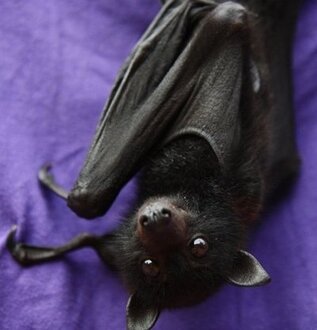

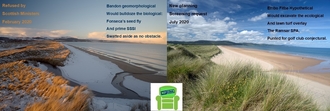.jpg)

